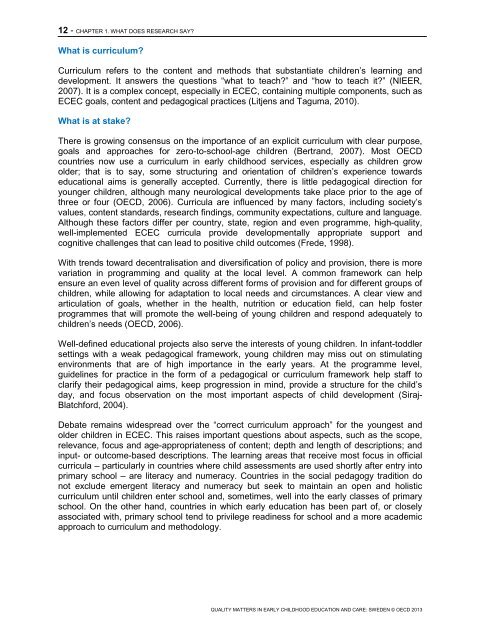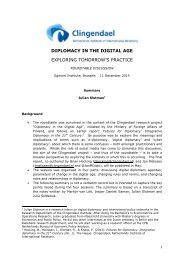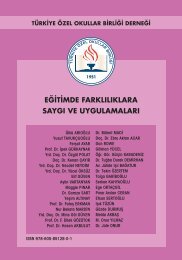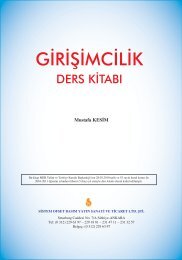SWEDEN%20policy%20profile%20-%20published%2005-02-2013
SWEDEN%20policy%20profile%20-%20published%2005-02-2013
SWEDEN%20policy%20profile%20-%20published%2005-02-2013
Create successful ePaper yourself
Turn your PDF publications into a flip-book with our unique Google optimized e-Paper software.
12 - CHAPTER 1. WHAT DOES RESEARCH SAY?<br />
What is curriculum?<br />
Curriculum refers to the content and methods that substantiate children’s learning and<br />
development. It answers the questions “what to teach?” and “how to teach it?” (NIEER,<br />
2007). It is a complex concept, especially in ECEC, containing multiple components, such as<br />
ECEC goals, content and pedagogical practices (Litjens and Taguma, 2010).<br />
What is at stake?<br />
There is growing consensus on the importance of an explicit curriculum with clear purpose,<br />
goals and approaches for zero-to-school-age children (Bertrand, 2007). Most OECD<br />
countries now use a curriculum in early childhood services, especially as children grow<br />
older; that is to say, some structuring and orientation of children’s experience towards<br />
educational aims is generally accepted. Currently, there is little pedagogical direction for<br />
younger children, although many neurological developments take place prior to the age of<br />
three or four (OECD, 2006). Curricula are influenced by many factors, including society’s<br />
values, content standards, research findings, community expectations, culture and language.<br />
Although these factors differ per country, state, region and even programme, high-quality,<br />
well-implemented ECEC curricula provide developmentally appropriate support and<br />
cognitive challenges that can lead to positive child outcomes (Frede, 1998).<br />
With trends toward decentralisation and diversification of policy and provision, there is more<br />
variation in programming and quality at the local level. A common framework can help<br />
ensure an even level of quality across different forms of provision and for different groups of<br />
children, while allowing for adaptation to local needs and circumstances. A clear view and<br />
articulation of goals, whether in the health, nutrition or education field, can help foster<br />
programmes that will promote the well-being of young children and respond adequately to<br />
children’s needs (OECD, 2006).<br />
Well-defined educational projects also serve the interests of young children. In infant-toddler<br />
settings with a weak pedagogical framework, young children may miss out on stimulating<br />
environments that are of high importance in the early years. At the programme level,<br />
guidelines for practice in the form of a pedagogical or curriculum framework help staff to<br />
clarify their pedagogical aims, keep progression in mind, provide a structure for the child’s<br />
day, and focus observation on the most important aspects of child development (Siraj-<br />
Blatchford, 2004).<br />
Debate remains widespread over the “correct curriculum approach” for the youngest and<br />
older children in ECEC. This raises important questions about aspects, such as the scope,<br />
relevance, focus and age-appropriateness of content; depth and length of descriptions; and<br />
input- or outcome-based descriptions. The learning areas that receive most focus in official<br />
curricula – particularly in countries where child assessments are used shortly after entry into<br />
primary school – are literacy and numeracy. Countries in the social pedagogy tradition do<br />
not exclude emergent literacy and numeracy but seek to maintain an open and holistic<br />
curriculum until children enter school and, sometimes, well into the early classes of primary<br />
school. On the other hand, countries in which early education has been part of, or closely<br />
associated with, primary school tend to privilege readiness for school and a more academic<br />
approach to curriculum and methodology.<br />
QUALITY MATTERS IN EARLY CHILDHOOD EDUCATION AND CARE: SWEDEN © OECD <strong>2013</strong>








